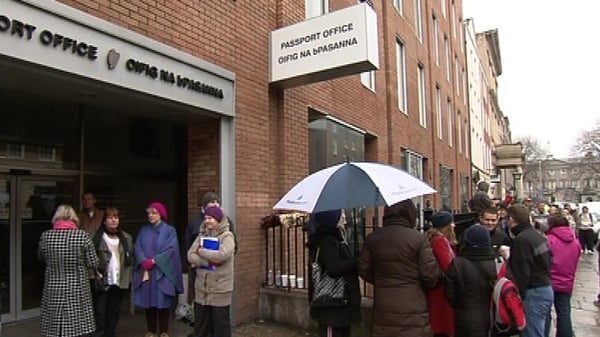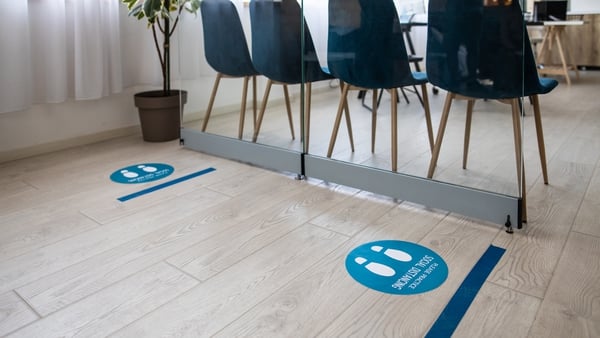Analysis: the WRC is a one stop shop for the resolution of a myriad of employment law issues and disputes
This article is now available above as a Brainstorm podcast. You can subscribe to the Brainstorm podcast via Apple Podcasts, Spotify, Stitcher or wherever you get your podcasts.
Prior to the establishment of the Workplace Relations Commission (WRC) in 2015, a number of organisations had responsibility for dealing with different types of employment law disputes and matters concerning industrial relations. These included the Employment Appeals Tribunal, Equality Tribunal, Equality Authority, rights commissioner, Labour Relations Commission and the National Employment Rights Authority
Unsurprisingly, many found it difficult to navigate this myriad of ways of handling employment law related disputes, as there was a lot of complexity and confusion about which was the most suitable forum for managing particular issues. Ultimately, the system was failing to efficiently process employment related disputes for all parties involved.
We need your consent to load this rte-player contentWe use rte-player to manage extra content that can set cookies on your device and collect data about your activity. Please review their details and accept them to load the content.Manage Preferences
From RTÉ Radio 1's This Week in 2015, a look at the issues around the establishment of the Workplace Relations Commission
This led to a call for a substantial reform of the 'complex Workplace Relations systems'. These reforms resulted in the creation of the Workplace Relations Commission in October 2015, with the aim of streamlining and simplifying the process, essentially creating a 'one stop shop' for the resolution of employment law issues.
What does the WRC do?
The WRC is much more than a complaints forum for employees to bring employment rights related claims against their employers. It is an independent body and it serves employers and employees in both the public and private sectors. The WRC has responsibility for promoting the maintenance and improvement of workplace relations, while its Information and Customer Service Division facilitates the provision of advice and guidance on employment law rights, equality rights as well as industrial relations matters.
In addition to advisory services, the WRC provides alternative dispute resolution services including conciliation, mediation and adjudication of complaints and disputes. The types of disputes that would typically be submitted to conciliation include issues around pay, shift work, hours of work, change of work practices, employment related benefits (e.g. right to sick pay, inclusion on bonus schemes, payment of expenses etc), issues relating to leave entitlements, pensions and redundancy.
We need your consent to load this rte-player contentWe use rte-player to manage extra content that can set cookies on your device and collect data about your activity. Please review their details and accept them to load the content.Manage Preferences
From RTÉ Radio 1's Morning Ireland in June 2022, RTÉ Work & Technology Correspondent Brian O'Donovan reports on how pay talks between the Government and public sector unions end without agreement
The WRC has responsibility for drafting codes of practice on behaviour in workplaces, or in relation to industrial action, as well as providing guidance on compliance with these codes of practice. These Codes of Practice deal with a broad spectrum of issues, such as grievance and disciplinary procedures, access to part-time work, Sunday working in the retail trade, bullying in the workplace, protected disclosures and the right of employees to disconnect from work outside their usual working hours.
The WRC has a significant role in conducting inspections of workplaces and ensuring compliance with employment law. It can undertake research into workplace relations matters and has a duty to disseminate advice and information relating to research findings to joint labour committees and joint industrial councils. The WRC will keep the Minister updated on the implementation of, and compliance with, applicable employment legislation, and at the request of the Minister, can act in a representative capacity at meetings held outside the State on employment law, industrial and workplace relations matters.
What type of claims can be heard at the WRC?
The remit of the WRC covers employment equality in the workplace, discrimination and pensions. Among the type of claims that may be submitted to the WRC for hearing are those relating to terms and conditions of employment contracts, pay disputes, grievance and disciplinary procedures, discrimination in the workplace, dismissal from employment.
We need your consent to load this rte-player contentWe use rte-player to manage extra content that can set cookies on your device and collect data about your activity. Please review their details and accept them to load the content.Manage Preferences
From RTÉ Radio 1's The Business in 2013, discussion on employment rights with employment law solicitors Terrence O'Sullivan and Anne Lyne
There are different time limits depending on whether your claim relates to employment equality, discrimination regarding pensions, and equal status (discrimination in non-employment settings e.g. access to goods or services).
If you are bringing a claim of discrimination relating to employment or pensions, you are required to submit your claim to the WRC using the online complaints form within six months from the date the alleged discrimination occurred. In exceptional cases, permission can be sought from the Director General of the WRC to extend this time limit for submission of a discrimination claim to 12 months.
Equal status claims would concern discrimination on the grounds prohibited by the Equal Status Acts 2000-2015, and access to goods and services. Equal status claims do not deal with any employment related matters. Equal status complaints must initially be submitted to the person or organisation deemed responsible for the alleged discrimination within two months of the last incident. This time limit can be extended to four months with the permission of the WRC’s Director General. Equal status complaints will only be handled by the WRC if the person or organisation fails to respond within a month to submitted complaint, or if there has been an unsatisfactory response.
We need your consent to load this rte-player contentWe use rte-player to manage extra content that can set cookies on your device and collect data about your activity. Please review their details and accept them to load the content.Manage Preferences
From RTÉ Radio 1's Drivetime in 2020, David Joyce from the Irish Congress of Trade Unions discusses homophobia in the workplace after a man who was labelled with a homophobic slur was awarded €27,000 at the WRC
Are hearings held in private?
Traditionally hearings before the WRC have been in private. However, in 2021 the Supreme Court in Zalewski v. Adjudication Officer and WRC, Ireland and the Attorney General, ruled that WRC adjudication officers are engaged in the administration of justice and, as such, the practice that hearings before WRC adjudication officers would be in private was deemed to be unconstitutional. The Supreme Court also identified the need to provide for administration of oaths when giving evidence before WRC hearings.
Consequently, a number of procedural changes have been introduced. WRC hearings concerning employment or equality rights will now be in public, provision must be made for the administration of oaths for taking evidence, and decisions of the WRC will no longer be anonymised.
The WRC is much more than a complaints forum for employees to bring employment rights related claims against their employers
Private hearings and the anonymised reporting of decisions may be permissible in exceptional circumstances. This will be determined by either an adjudication officer or where an application is made to the courts for permission to hold the hearing in private. Industrial relations disputes will continue to be conducted in private in accordance with the provisions of the Industrial Relations Act 1969.
Is it possible to appeal WRC decisions?
The Labour Court can hear appeals of WRC decisions on employment matters. Appeals on a point of law only can be made to the High Court. The Circuit Court will deal with appeals of WRC decisions on equal status matters.
The views expressed here are those of the author and do not represent or reflect the views of RTÉ





